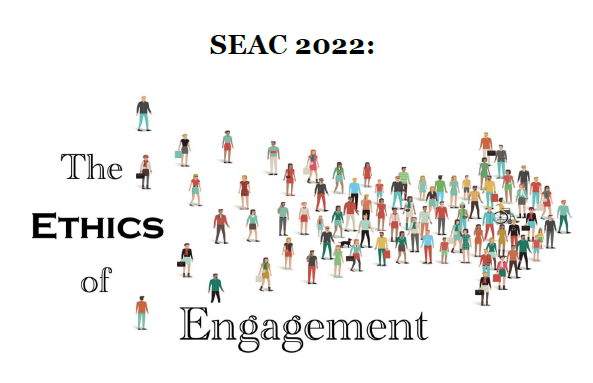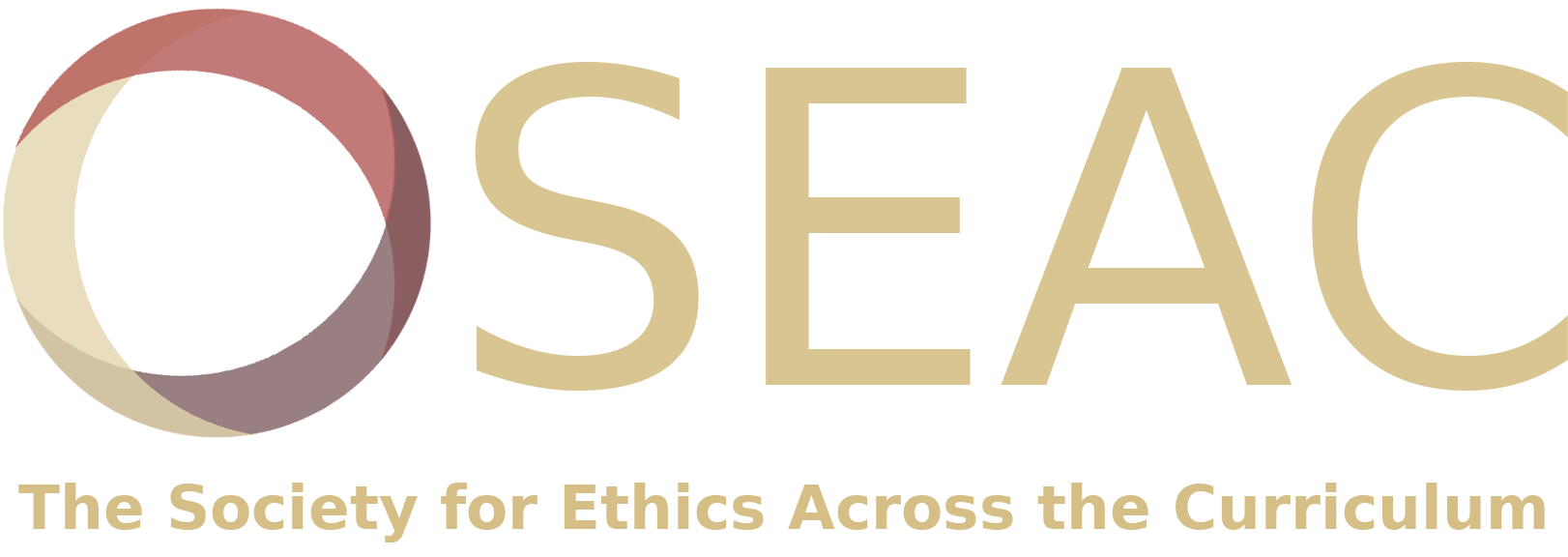
Concurrent Session 3D
Location
Ford Ballroom D, The Inn at Ole Miss
Start Date
6-10-2022 2:35 PM
End Date
6-10-2022 3:45 PM
Description
- Developing Moral Awareness: Combatting STEM Student Disengagement / José Cruz-Cruz, University of Puerto Rico at Mayaguez; William Frey, University of Puerto Rico at Mayaguez
This presentation will place reflection on emotions at the center of pedagogical approaches designed to promote the Hasting Center objective of increasing moral awareness. Emotions are built around appraisals which provide them with cognitive content. As Callahan puts it, the skill of moral awareness can be developed by reflecting on its constituent elements of appraisal and judgment, the cognitive contents around which emotions are built. This presentation will outline three activities designed to develop this skill in the STEM classroom. Each activity draws on a pivot from the emotion to the cognitive content around which it is built. (1) A role play based on the public debate into whether to install a radar facility in Lajas, Puerto Rico will provide an opportunity to reflect on fear. (2) A series of scenarios outlining "good corporations gone bad" will provide the opportunity to reflect on anger and its pivot to punishment or moral repair. (3) The scenario of "An Island Nation" will provide an opportunity to examine if compassion is an appropriate response to the sufferings of the island nation's inhabitants. A debate structured around compassion's three appraisals (size, desert, and circle of concern) has been used to promote STEM student reflection on the emotion of compassion. This presentation provides the authors with an opportunity to disseminate classroom activities designed to combat STEM student disengagement from the ethical, social, and global. These were developed through a grant, NSF SES 1449489. - The Denial of Science, Emerging Technologies, and Stakeholder Engagement: Ethical and Anticipated Ethical Issues / Richard Wilson, Towson University
Science denial has a long history of causing harm in contemporary society when ignored. Recent discussions of science denial suggest that correcting people’s false beliefs rarely has an impact on eliminating the adherence to false beliefs and assumptions, which is called the backfire effect. The use of epistemic understanding of knowledge production in science with a focus on avoiding the backfire effect may increase the potential for science education research to produce fruitful strategies which advance students’ attitudes toward science and deepen students’ understanding of how science works through divergent perspectives. There are some areas that need to be focused on and investigated for their potential to combat science denial and the backfire effect while foregrounding the role(s) epistemic understanding of knowledge production for science instruction. Emerging technologies are technologies whose development, practical applications, or both are still largely unrealized, such that they are figuratively emerging into prominence from a background of nonexistence or obscurity. These technologies are generally new but also include older technologies. Emerging technologies are often perceived as capable of changing the status quo. This analysis is aimed at discussing issues related to The Denial of Science, Emerging Technologies, and Stakeholder Engagement with a focus on the Ethical and Anticipated Ethical Issues. The aim is to identify strategies of engagement in order to overcome the denial of science.
Session Chair: Neil Manson, University of Mississippi
Relational Format
conference proceeding
Recommended Citation
Cruz-Cruz, José; Frey, William; Wilson, Richard; and Manson, Neil, "Concurrent Session 3D" (2022). Society for Ethics Across the Curriculum Conference. 15.
https://egrove.olemiss.edu/seac/2022/schedule/15
COinS
Oct 6th, 2:35 PM
Oct 6th, 3:45 PM
Concurrent Session 3D
Ford Ballroom D, The Inn at Ole Miss
- Developing Moral Awareness: Combatting STEM Student Disengagement / José Cruz-Cruz, University of Puerto Rico at Mayaguez; William Frey, University of Puerto Rico at Mayaguez
This presentation will place reflection on emotions at the center of pedagogical approaches designed to promote the Hasting Center objective of increasing moral awareness. Emotions are built around appraisals which provide them with cognitive content. As Callahan puts it, the skill of moral awareness can be developed by reflecting on its constituent elements of appraisal and judgment, the cognitive contents around which emotions are built. This presentation will outline three activities designed to develop this skill in the STEM classroom. Each activity draws on a pivot from the emotion to the cognitive content around which it is built. (1) A role play based on the public debate into whether to install a radar facility in Lajas, Puerto Rico will provide an opportunity to reflect on fear. (2) A series of scenarios outlining "good corporations gone bad" will provide the opportunity to reflect on anger and its pivot to punishment or moral repair. (3) The scenario of "An Island Nation" will provide an opportunity to examine if compassion is an appropriate response to the sufferings of the island nation's inhabitants. A debate structured around compassion's three appraisals (size, desert, and circle of concern) has been used to promote STEM student reflection on the emotion of compassion. This presentation provides the authors with an opportunity to disseminate classroom activities designed to combat STEM student disengagement from the ethical, social, and global. These were developed through a grant, NSF SES 1449489. - The Denial of Science, Emerging Technologies, and Stakeholder Engagement: Ethical and Anticipated Ethical Issues / Richard Wilson, Towson University
Science denial has a long history of causing harm in contemporary society when ignored. Recent discussions of science denial suggest that correcting people’s false beliefs rarely has an impact on eliminating the adherence to false beliefs and assumptions, which is called the backfire effect. The use of epistemic understanding of knowledge production in science with a focus on avoiding the backfire effect may increase the potential for science education research to produce fruitful strategies which advance students’ attitudes toward science and deepen students’ understanding of how science works through divergent perspectives. There are some areas that need to be focused on and investigated for their potential to combat science denial and the backfire effect while foregrounding the role(s) epistemic understanding of knowledge production for science instruction. Emerging technologies are technologies whose development, practical applications, or both are still largely unrealized, such that they are figuratively emerging into prominence from a background of nonexistence or obscurity. These technologies are generally new but also include older technologies. Emerging technologies are often perceived as capable of changing the status quo. This analysis is aimed at discussing issues related to The Denial of Science, Emerging Technologies, and Stakeholder Engagement with a focus on the Ethical and Anticipated Ethical Issues. The aim is to identify strategies of engagement in order to overcome the denial of science.
Session Chair: Neil Manson, University of Mississippi


